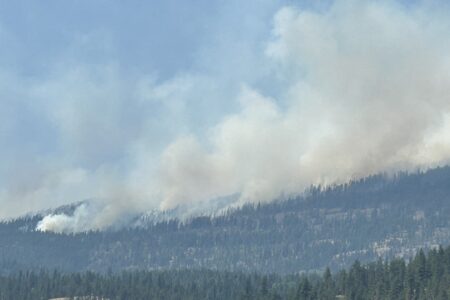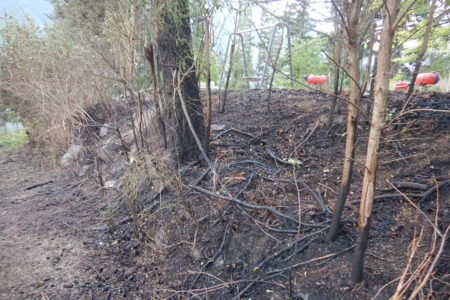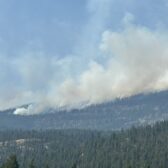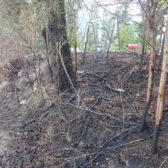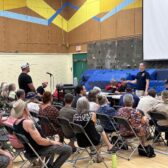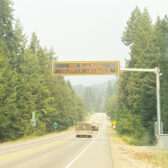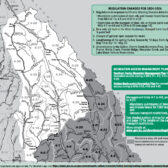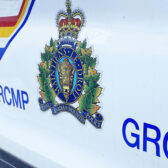Pandemic payouts averted six per cent taxation hike for Nelsonites in 2020
It was a time unlike anything ever seen in modern history.
When the COVID-19 pandemic closed down much of the nation’s economy and culture it also reverberated into the usually isolated and insulated realm of Nelson.
Overnight businesses and recreational activities closed and thousands of people were out of work, including many Nelsonites.
Like its provincial and federal counterparts, the city tried to provide some relief to people while keeping the wheels of government operational in uncertain times.
Toward that end, the city adjusted its 2020 budget for anticipated revenue losses and increased operating expenses, noted city chief financial officer Colin McClure in the annual report, and city council formulated an economic stimulus and financial stability 25-point action plan “to provide community stimulus and support.”
That plan delivered some relief to citizens, including the freezing of Nelson Hydro rates (at 2019 levels), enhancing the Eco-Save Energy retrofit program, waiving patio and sidewalk rental fees and extending utility bill due dates and penalty dates.
“In addition, it involved building an operating budget that maintained service levels with a zero per cent tax increase, which required the city to lean heavily on reserves to balance the budget,” he told council in his report on June 29, one day before the city was required to file the annual report with the province.
In turn, as the pandemic wore on, the province and the federal government eventually passed along grant money to municipal governments like Nelson as COVID-19 restart funding, with the city receiving $2.6 million.
Through revenue sharing and traffic fine sharing the city received $564,000 in provincial unconditional grants — used for administrative and operational costs for the city’s police department — to reduce the tax burden in the city.
“Without the small community grant, the city would have needed to increase taxes by approximately six per cent,” McClure explained.
By year‐end, the city had an estimated revenue shortfall of $747,000 and additional expenses of $653,000 due to the pandemic, which was covered by the funding, noted city deputy chief financial officer Chris Jury during one of the first in-person council meetings in several months.
“The remaining restart funds have been budgeted for future years to assist the city in making operational and technological improvements and assisting our non‐profit community with grants,” said McClure.
Key budget and Public Works points
• The city has a variety of revenue sources, including taxation and grants‐in‐lieu of $10.7 million and $4.1 million in sales of other services.
• The city received significant revenue from user fees (including the electrical utility), which in 2020 amounted to $25.5 million.
• Operating expenditures include $7.4 million in protective services, $3.5 million in transportation services, $3.9 million in general government/corporate services and $2.7 million in recreation, the library and cultural services.
• Utility operations expenditures (including Nelson Hydro) total $16.3 million. In addition, the city contributed $285,000 towards the $1.7 million gross 2020 operating expenses of transit.
• Work was completed on a 2.2‐kilometre, 16‐inch water line to transport water from the top of Stanley Street to a reservoir at Mountain Station.
• The city continued its street repaving program, having completed 60 blocks of paving in 2019‐2020. The city also continued relining and replacing ageing sewer and water line infrastructure.
• Nelson’s parks also saw some amenity upgrades, with the washroom installation at the foot of Hall Street; and substantial completion of the Cottonwood Park stage.
“Even though some of those things were additional costs and staff time to deal with around COVID, things managed to stay really close in line to budget and that was a positive,” said Jury.
By the numbers
• The long term debt issued and outstanding as of Dec. 31, 2020 (including temporary borrowing and capital lease obligations) was $11.3 million. In 2019, this balance was $12.7 million.
• The city’s long term debt falls under two classifications — general debt and utility debt. General debt is funded through taxation while utility debt is funded and repaid through the related water, sewer and hydro rates.
• The outstanding debenture debt at the end of 2020 for each of the city’s funds is:
general $5,478,431; water $587,818; sewer $321,117; Nelson Hydro $4,964,078.
Source: City of Nelson Finance Department




